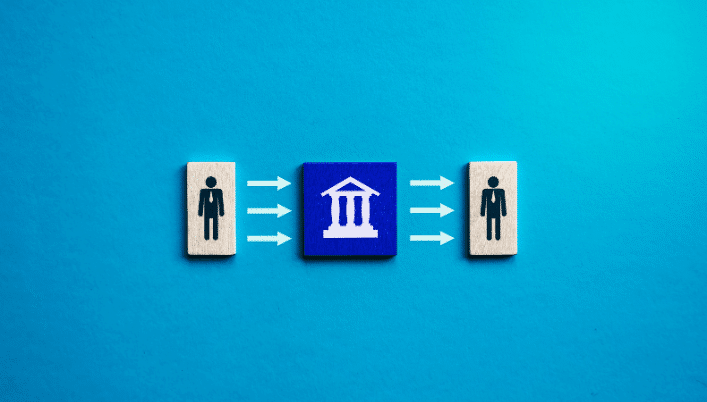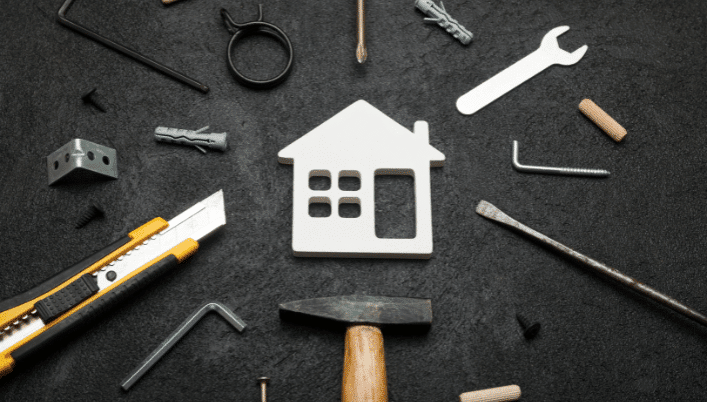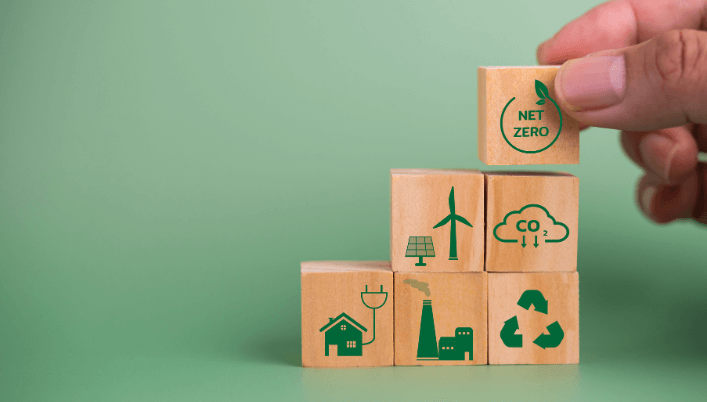
What is the Building and Construction Authority (BCA)?
Definition of the Building and Construction Authority (BCA)
The Building and Construction Authority (BCA) is a government agency in Singapore that acts as the regulatory body for the building and construction industry.
It is responsible for managing the industry’s standards and ensuring that buildings and construction sites are safe and comply with regulations.
The BCA is also involved in professional development, promoting sustainability, and driving productivity in the industry.
The BCA works closely with industry professionals, such as architects, engineers, and contractors, to set standards and guidelines for building safety, quality, and sustainability.
It also provides training and certification programs to improve the skills and competence of professionals in the industry.
Additionally, the BCA oversees the registration of contractors and the licensing of builders to maintain industry standards and ensure accountability.
Mission and Vision of the Building and Construction Authority (BCA)
The mission of the Building and Construction Authority (BCA) is to shape a safe, high-quality, sustainable, and friendly built environment.
The BCA aims to transform the industry and empower professionals to create buildings and infrastructure that meet the needs of society and enhance the quality of life for Singaporeans.
The BCA’s vision is to have a future-ready built environment sector that supports a sustainable and liveable Singapore.
It strives to be a leading authority in sustainability and innovation, driving the transformation of the industry towards greater efficiency and environmental consciousness.
Key Functions of the Building and Construction Authority (BCA)
The Building and Construction Authority (BCA) plays several vital roles in supporting the building and construction industry in Singapore.
These include:
- Providing services to the industry: The BCA offers a range of services to support the industry, including information and resources on regulations, building codes, and best practices. It also provides assistance and guidance on project development and implementation.
- Promoting workforce development: The BCA is committed to enhancing the skills and productivity of the industry’s workforce. It offers training programs and certification schemes for professionals, skilled workers, and artisans to upgrade their skills and stay updated with the latest industry developments.
- Setting industry standards: The BCA establishes and enforces standards and regulations for building safety, quality, and sustainability. It conducts research and development to improve construction methods and materials and works with industry stakeholders to develop and update industry codes and guidelines.
- Driving productivity and innovation: The BCA spearheads initiatives to improve productivity and promote innovation in the industry. It encourages the adoption of advanced technologies and construction methods to streamline processes and reduce costs. The BCA also supports research and development in areas such as sustainable building practices and innovative technologies.
- Policy development and regulation: The BCA formulates policies and regulations to govern the building and construction industry. It ensures compliance with regulatory requirements and investigates complaints related to building and construction matters. The BCA also seeks feedback from stakeholders to improve industry practices and address emerging challenges.
In summary, the Building and Construction Authority (BCA) plays a crucial role in ensuring that Singapore’s building and construction industry operates at high standards of safety, quality, and sustainability.
Through its various functions, the BCA supports professionals and industry stakeholders in delivering projects that contribute to Singapore’s built environment and enhance the lives of its residents.
Key Takeaways
- Definition of BCA: The BCA is a government agency responsible for regulating the building and construction industry in Singapore, ensuring safety, standards compliance, and sustainability.
- Mission and Vision: BCA’s mission is to shape a safe, high-quality, sustainable, and friendly built environment. Their vision is to have a future-ready built environment sector supporting a sustainable and livable Singapore.
- Key Functions: BCA provides services to the industry, promotes workforce development, sets industry standards, drives productivity and innovation, and regulates policies and regulations.
- Building Control: BCA oversees building construction, green building practices, energy efficiency, and accessibility standards.
- Construction Safety: BCA focuses on worker and site safety, green technologies, and accessibility in construction sites.
- Lifts and Escalators: BCA regulates and monitors lifts and escalators to ensure safety and efficiency within buildings.
- Workforce Development: BCA offers training programs to enhance industry skills and professionalism.
- Productivity and Innovation: BCA supports productivity initiatives, encourages green building practices, and promotes industry transformation.
- Sustainability: BCA promotes sustainability through green building policies, energy-efficient practices, and sustainable materials.
- Green Mark Scheme: BCA’s Green Mark Scheme encourages and certifies sustainable building practices, providing benefits to building owners in reputation, financial savings, and occupant well-being.
BCA Regulatory Services

The Building and Construction Authority (BCA) in Singapore is a government department that plays a crucial role in the building and construction industry.
They provide a variety of regulatory services to ensure the safety, sustainability, and efficiency of buildings and construction projects.
Here, we will explore three critical areas of BCA regulatory services.
Building Control
Building control is an essential aspect of the BCA’s regulatory services.
They oversee various aspects of building construction, including Jurong Gateway Road, Building Information Modelling (BIM), efficient building design, and the promotion of green buildings.
The BCA encourages the use of sustainable construction practices and promotes the green building movement.
They also focus on improving accessibility in buildings and ensuring building safety through regulatory standards.
To stay updated on the latest requirements, the BCA offers registration services for professionals in the public sector.
Additionally, they emphasize energy efficiency and the development of infrastructure that meets the needs of a growing population.
Construction Safety
Construction safety is another significant area of concern for the BCA.
They aim to ensure the safety of workers and users of construction sites.
The BCA actively encourages the adoption of green building technologies and participates in events such as the International Green Building Conference and BCA Green Building Exhibitions.
They also prioritize the creation of accessible buildings to cater to the needs of all individuals.
The BCA provides guidance and regulations to promote safety and monitor the progress of construction-related activities.
By staying updated on the latest industry standards, they work to enhance safety across all aspects of the construction trade.
Lifts and Escalators
The BCA also focuses on lifts and escalators to ensure the safety, efficiency, and connectivity within buildings.
They work towards building capabilities and maintaining regulatory standards for lifts and escalators.
By doing so, they ensure the safety of building users and improve the efficiency and connectivity between buildings.
The BCA regulates and monitors lifts and escalators to guarantee that they meet the necessary safety standards set by the industry.
They also collaborate with trade professionals to enhance safety aspects and address any new developments in lift and escalator technology.
In summary, the BCA plays a crucial role in Singapore’s building and construction industry by providing regulatory services.
Building control, construction safety, and lifts and escalators are three key areas they focus on.
Through these efforts, the BCA aims to promote safety, sustainability, and efficiency within the industry.
By staying updated on the latest standards and collaborating with industry professionals, they ensure that Singapore’s buildings meet the highest regulatory requirements.
BCA Industry Development Services

The Building and Construction Authority (BCA) of Singapore plays a vital role in the country’s construction industry.
With a focus on safety, sustainability, and industry development, the BCA works alongside various stakeholders and partners to ensure that the built environment is of the highest quality.
In this article, we will explore some of the critical services provided by the BCA in supporting the growth and development of the industry.
Workforce Development
The BCA recognizes the importance of a skilled workforce in driving the industry forward.
They offer a wide range of courses and training programs to enhance the capabilities of workers.
By equipping them with the necessary knowledge and skills, the BCA promotes professionalism and inclusiveness within the industry.
They also collaborate with trade associations, unions, and other relevant organizations to meet the evolving needs of the workforce.
Productivity and Innovation
Productivity and innovation are crucial in ensuring the long-term sustainability of the construction industry.
The BCA actively promotes and supports productivity initiatives through various means, such as providing grants and incentives for companies to adopt advanced technologies and processes.
They also organize events and initiatives focused on green building and sustainable practices to drive industry transformation and collaboration.
Sustainability
Sustainability is at the core of the BCA’s mission.
They have implemented a range of green building policies, guidelines, and initiatives to create a sustainable and environmentally friendly built environment.
The BCA encourages the adoption of energy-efficient practices and the use of sustainable materials in construction projects.
They also promote retrofits and upgrades of existing buildings to enhance energy efficiency and reduce carbon emissions.
Furthermore, the BCA emphasizes the importance of sustainable infrastructure and landscape design to create vibrant and livable spaces.
Overall, the BCA plays a critical role in Singapore’s building and construction industry.
Through their various initiatives and services, they work towards ensuring the highest standards of safety, sustainability, and professionalism.
By fostering collaboration and innovation, the BCA strives to create a resilient and future-ready industry.
For more information about the BCA and their services, you can visit their official website here.
BCA Green Mark Scheme

The Building and Construction Authority (BCA) in Singapore is a government agency that oversees the building and construction industry in the country.
With a focus on safety, quality, and sustainability, the BCA plays a crucial role in regulating and promoting the industry.
Overview of the Green Mark Scheme
The BCA Green Mark Scheme is a key initiative by the BCA to encourage and promote environmental sustainability in the building and construction industry.
The scheme provides guidelines and standards for the design, construction, and operation of green buildings in Singapore.
The scheme rates buildings based on their level of sustainability, with higher ratings indicating greater adoption of green building technologies and practices.
Establishments that achieve a Green Mark certification are recognized and awarded by the BCA.
The Green Mark Scheme covers various aspects of sustainability, including energy efficiency, water efficiency, indoor environmental quality, and the adoption of green building technologies.
It aims to reduce the environmental impact of buildings and promote sustainable development in the industry.
Benefits of Green Mark Certification
There are several benefits to obtaining Green Mark certification for a building project.
Firstly, it demonstrates a commitment to sustainability and aligns with the government’s green building policies.
This can enhance the reputation of the building and attract environmentally conscious clients and tenants.
Green Mark-certified buildings also enjoy various financial benefits.
The adoption of energy-efficient technologies and practices can result in significant energy savings, leading to lower operating costs for the building owner.
Additionally, government incentives and grants are available for projects that achieve Green Mark certification.
Sustainable building practices can also improve the well-being of occupants.
Green Mark-certified buildings prioritize indoor environmental quality and provide a healthier and more comfortable living or working environment.
This can lead to increased productivity and satisfaction among occupants.
How to Apply for Green Mark Certification
To apply for Green Mark certification, building owners or developers need to apply for the BCA.
The application process involves providing relevant information and documentation, including building plans, specifications, and environmental performance data.
The BCA evaluates the application based on the Green Mark certification criteria.
Building owners may need to engage professionals, such as architects, engineers, or environmental consultants, to assist in the certification process.
Once the evaluation is completed, successful applicants will be awarded the Green Mark certification.
Building owners need to stay updated on the latest developments and requirements of the Green Mark Scheme.
The BCA regularly updates the scheme to ensure its relevance and effectiveness in promoting sustainable building practices.
In conclusion, the BCA Green Mark Scheme plays a significant role in promoting sustainability in the building and construction industry in Singapore.
Green Mark certification not only demonstrates a commitment to environmental responsibility but also brings financial benefits and improved occupant well-being.
Building owners and developers are encouraged to apply for Green Mark certification and contribute to a more sustainable future.
BCA for the Public
The Building and Construction Authority (BCA) in Singapore is a government agency that plays a vital role in the building and construction industry.
With the mission to shape a safe, high-quality, sustainable, and friendly built environment, the BCA provides a range of services and initiatives for both homeowners and businesses.
BCA Services for Homeowners
For homeowners embarking on residential building projects, the BCA offers valuable services to ensure quality and safety.
The BCA regulates the construction industry and sets standards for building security, ensuring that all construction works comply with the relevant codes and regulations.
This includes overseeing the issuance of permits, conducting inspections, and enforcing compliance.
In addition to building safety, the BCA also addresses concerns related to sick building syndrome, where occupants experience health problems due to poor indoor air quality or other building-related issues.
The BCA provides guidelines and certification schemes to promote sustainable building practices, encouraging homeowners to adopt environmentally friendly and energy-efficient designs.
Homeowners can also rely on the BCA for information and resources on building-related matters.
The BCA website offers a wealth of resources, including guides on renovation works, information on permits and licenses, and tips on engaging reliable contractors.
Homeowners can access these resources to make informed decisions and ensure the quality of their building projects.
BCA Services for Businesses
The BCA also caters to businesses operating in the building and construction industry, as well as those seeking to improve their office buildings.
Recognizing the role of buildings in productivity and well-being, the BCA promotes green building policies and practices.
This includes providing incentives for firms to adopt sustainable building measures, such as energy-efficient designs and green technologies.
Collaboration is another crucial aspect of the BCA’s services for businesses.
The BCA works with industry professionals, research institutions, and other stakeholders to develop and implement standards and best practices.
By fostering collaboration, the BCA aims to enhance the capabilities and professionalism of the industry, ensuring high-quality construction and innovative solutions.
Furthermore, the BCA assists businesses in property-related matters.
The BCA regulates the property agents industry to protect consumers’ interests and maintain professional standards.
Companies can access the BCA’s online platform, where they can search for licensed property agents and verify their credentials.
This helps businesses engage reliable and reputable agents for their property needs.
Whether you are a homeowner or a business owner, the BCA is your go-to authority for building and construction matters in Singapore.
With a strong focus on safety, quality, and sustainability, the BCA plays a crucial role in shaping the built environment and ensuring that it meets the needs of the public and businesses alike.
By providing valuable services, promoting collaboration, and regulating the industry, the BCA contributes to the development of a vibrant and resilient construction sector in Singapore.
Conclusion
The Building and Construction Authority (BCA) plays a vital role in overseeing various areas of the construction industry in Singapore.
Alongside the Construction Industry Development Board (CIDB), BCA is responsible for shaping the built environment sector and ensuring it is vibrant and sustainable.
BCA has introduced numerous initiatives and programs to support the growth and development of the construction industry.
One such initiative is the Construction Productivity and Capability Fund (CPCF), which provides financial support and incentives for companies to improve their productivity and capabilities.
The establishment of the BCA Centre for Sustainable Buildings (BCA CSB) also reflects BCA’s commitment to sustainability.
The BCA CSB serves as a research and development hub, focusing on enhancing energy efficiency, green building technologies, link, and sustainable building practices.
One of BCA’s chief aims is to help achieve its mission of transforming the built environment sector to be more sustainable and productive.
Through initiatives like the Green Mark certification scheme, which promotes environmentally friendly buildings, and the Construction Productivity Roadmap, BCA is driving industry-wide improvements in sustainability and productivity.
BCA also actively engages with stakeholders through its Chamber of the Built Environment (CBE).
The CBE serves as a platform for industry practitioners, academics, researchers, and other stakeholders to collaborate and exchange ideas on advancing the built environment sector.
In addition, BCA’s progressiveness can be seen through its focus on developing the skills and capabilities of professionals in the industry.
The BCA Academy offers a wide range of training and education programs to equip individuals with the necessary knowledge and skills to excel in the construction sector.
Furthermore, BCA’s regulatory division ensures that high-quality standards are maintained in construction projects.
Through its rigorous inspection and enforcement efforts, BCA ensures that buildings are safe and comply with the necessary regulations and codes.
Overall, BCA’s role in the construction industry of Singapore is crucial.
Through its various initiatives, programs, and collaborations, BCA continues to shape a liveable and sustainable built environment.
By promoting sustainability and productivity, BCA is driving the industry towards a greener and more efficient future.
Frequently Asked Questions
What is the Building and Construction Authority (BCA)?
BCA’s mission is to shape a liveable and intelligent built environment for Singapore.
When was the BCA established?
What is the role of BCA in the construction industry?
It also collaborates with industry professionals and stakeholders to set standards and regulations for the construction industry.
What is BCA Academy?
It offers a wide range of courses to help individuals acquire the necessary skills and knowledge to excel in the industry.
What is the role of BCA in building safety?
It sets regulations and conducts inspections to ensure that buildings comply with safety requirements.
BCA also works to promote a safe and secure living environment for the residents of Singapore.
What is the purpose of the BCA Awards?
It acknowledges outstanding projects, professionals, and companies that have made significant contributions to the sector.
What is BuildSG?
It aims to transform the built environment sector by promoting innovation, productivity, and sustainability.
BuildSG provides industry professionals with access to resources, tools, and information to enhance their capabilities and support the industry’s growth.
What is CoreTrade?
It provides a structured training and certification framework for workers in specific trades, helping to improve the quality of artistry in the industry.
What is BCA's role in sustainability?
It sets green building standards and provides incentives and support for environmentally friendly building practices.
BCA also conducts research and development efforts to drive sustainability initiatives in the industry.
How does BCA contribute to the finance of the construction industry?
These include funding for research and development projects, innovation initiatives, and capability development programs.
BCA’s financial support helps to achieve its mission of transforming the built environment sector.












